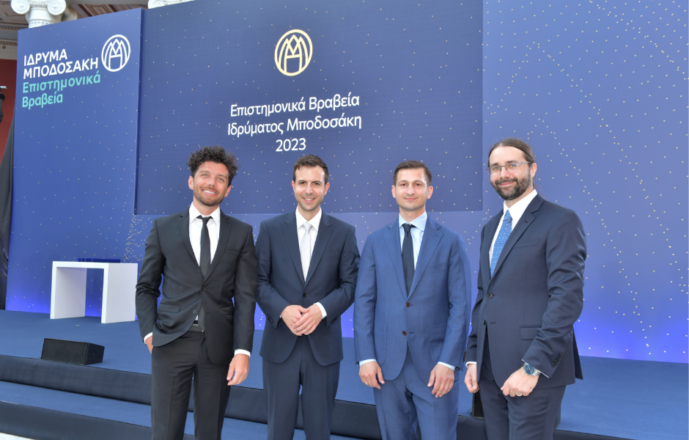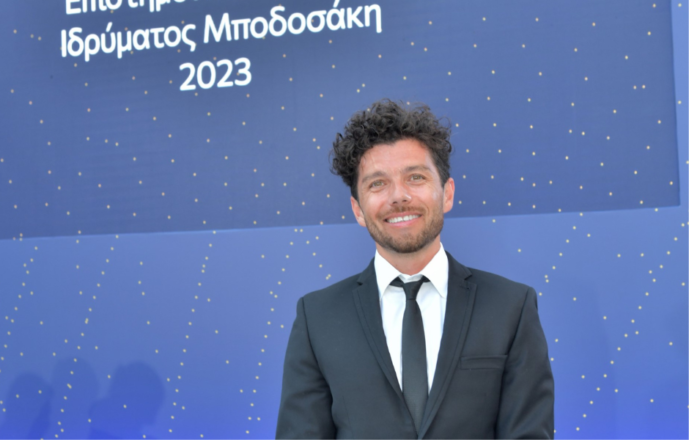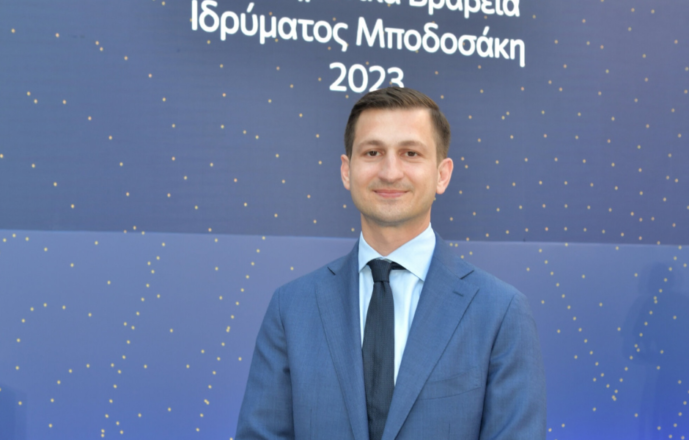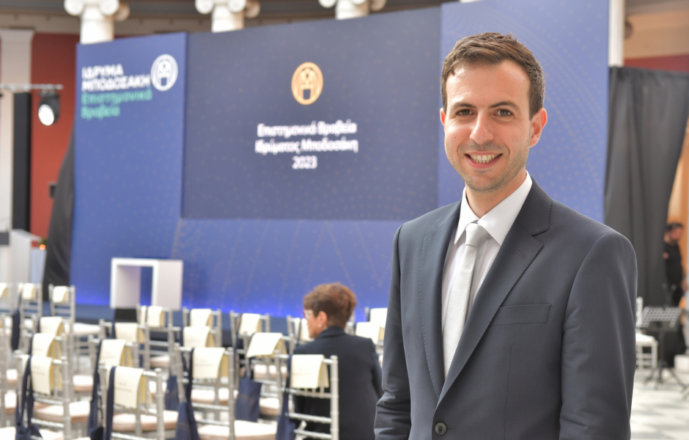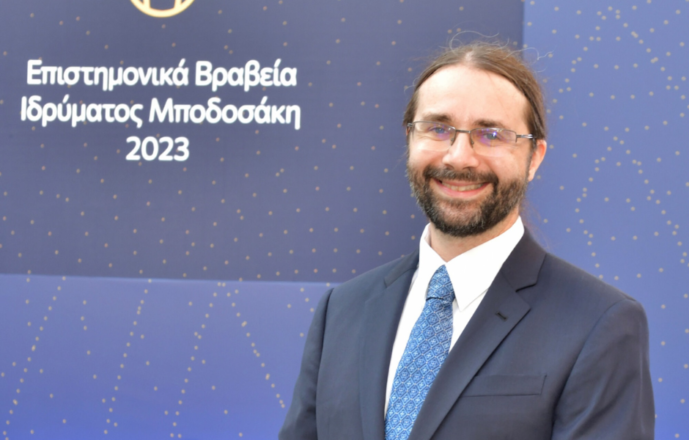Laureates by academic field
Science: Chemistry
The award is presented to Konstantinos Vogiatzis, Associate Professor of Theoretical and Computational Chemistry at the University of Tennessee, Knoxville, for his scientific work focusing on the development of computational methods based on quantum chemistry and artificial intelligence to describe chemical systems relevant to clean, green technologies. Find out more about Konstantinos Vogiatzis here.
Life Sciences: Biomedical Sciences
The award is presented to Edward Chouchani, of Greek descent, Associate Professor of Cancer Biology, Dana-Farber Cancer Institute and Associate Professor of Cell Biology at Harvard Medical School, for his work in developing technologies to understand how metabolites regulate physiological processes. The goal of his research lab is to leverage these newfound mechanisms to develop new therapies for metabolic, inflammatory, and metastatic diseases. Find out more about Edward Chouchani here.
Applied Science: Applications of Artificial Intelligence Methods and Technologies in Engineering Disciplines
The award is presented to Vasilis Syrgkanis, Assistant Professor of Management Science and Engineering and (by courtesy) of Computer Science, at Stanford University, and a James and Anna Marie Spilker Faculty Fellow, for his research in the fields of artificial intelligence and machine learning, game theory and theory of algorithms, ultimately aiming at developing novel techniques for optimal data-driven decision making. His work contributes to a broad range of fields such as machine learning, econometrics, statistics, learning theory and game theory/mechanism design. Find out more about Vasilis Syrgkanis here.
Social-Economic Sciences: Economic or Political Sciences
The award is presented to Philipp Strack, of Greek descent Professor of Economics at Yale University, for his work on economic theory and behavioral economics. His work spans a wide range of topics with direct importance to society, such as the consequences of overconfidence and other misunderstandings for decision making, the psychological mechanisms behind prejudice, the design of auctions and organ exchanges, the dynamic pricing of goods, the optimal structuring of lockdowns in a pandemic, the design of cryptocurrencies, optimal taxes to reduce carbon emissions without hurting the poor. Find out more about Philipp Strack here.

